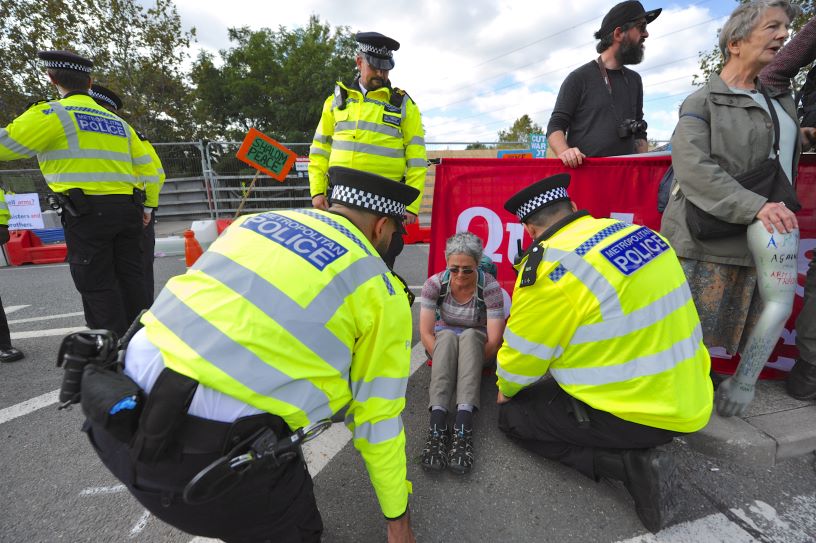Quakers ask Lords to block "back door" attempts to shut down protest
Quakers have joined 48 other organisations in calling on peers to reject “extreme and chilling" government measures.

In an unprecedented move, the government has returned measures removed by the Lords from February's Public Order Act as secondary legislation. The measures would give police almost total discretion over protests.
In an open letter, the organisations said these measures would mark “yet another significant shift in public order policing" beyond the huge expansion of powers, offences and increased penalties in the Policing Act 2022, and the Public Order Act 2023.
[QUOTE-START]
Instead of punishing those who seek to combat the crises facing us, the government should focus on the cause of the crises
- Paul Parker
[QUOTE-END]
The legislation, prompted by protestors who block roads, including slow walking marches, would allow police to limit protests they think “may" cause “more than minor" disruption.
It would include imposing noise restrictions and changing timings, locations, and routes, and lowers the level at which police can interfere with protests. This is currently defined as "significant" or "prolonged" disruption.
Peers are not allowed to propose changes to regulations, and by convention wave them through.
But many peers are angry that a policy they rejected has returned by the back door and Jenny Jones, the Green Party peer, has tabled a rare "fatal motion" to reject the regulations.
Now organisations including Friends of the Earth, the Muslim Council of Britain and the Women's Institute are urging peers to back Jones's motion.
The legislation was expected to pass a vote in the Commons on Monday and be debated in the Lords on Tuesday.
"Week in and week out communities, charities, unions, and campaigning groups organize protests in towns, cities and villages which might in future be considered by the police to cause 'more than minor' delay, hindrance, or disruption," the signatories said.
Paul Parker, recording clerk for Quakers in Britain, said: "As Quakers, we are called to put our faith into action, to speak out against injustice. Protest is one of the ways we do that.
"Instead of punishing those who seek to combat the crises facing us, the government should focus on the cause of the crises."
The letter was featured in the Guardian.